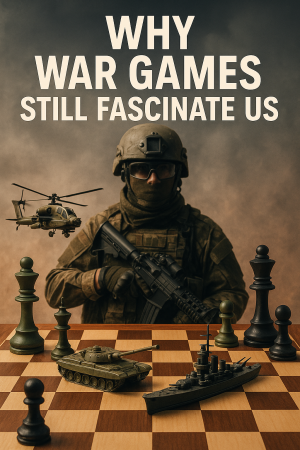War games have been a fixture of play for centuries — from tabletop miniatures to sprawling modern shooters. But the jump from simple simulations to blockbuster video games has changed not just how we play, but why we care. Modern titles blend spectacle, storytelling, competition, and community into experiences that can feel strangely meaningful: they let us rehearse heroism, grapple with ethics, and belong to something bigger than a single match.
For many players, that journey starts practically: you might read reviews, watch a streamer, then pick up a BF6 key yourself to jump into the action. Buying a key is how most gamers cross the threshold from curious observer to participant, and once inside, they encounter layers that reach far beyond explosions and scoreboards.
What draws people in (beyond the boom)
There are a few recurring reasons war games keep drawing attention, and they work for gamers and non-gamers alike.
The core appeals
- Story and spectacle: Single-player campaigns and cinematic set pieces borrow from movies, creating easily-shared emotional moments.
- Ritualized competition: Multiplayer matches turn tactics and reflexes into social rituals — a format that’s easy to understand and addictive.
- Community and identity: Clans, squads, and streaming followings create social structures that give play meaning.
These elements make war games accessible to people who like narrative and drama, not just twitch reflexes.
How games mirror—and distort—real conflict
War games rarely aim to be documentary-accurate. Instead, they compress complexity into playable systems: resources become ammo, politics become objectives, and logistics get simplified into respawn timers. That makes the experience tighter and more immediately satisfying, but it can also flatten real-world nuance.
Still, many games now include thoughtful elements: moral choices, civilian impact, and consequences for tactics. Some developers consult historians and veterans to add authenticity to weapon behavior, unit tactics, and environments. That effort doesn’t make a game a history lesson, but it does show an industry awareness that representation matters.
Why the fascination matters culturally
War games act as cultural mirrors. They surface questions about leadership, sacrifice, and the cost of conflict in a format people already understand. For younger players, they can be an entry point to historical curiosity; for older players, they can become a medium for processing grief or national narratives. Importantly, the popularity of these games also sparks discussion about ethics and responsibility in media.
Small studies and trends (what research suggests)
- Players often report increased interest in history after engaging with historically-inspired games.
- Communities form around shared values as much as gameplay, turning matches into social rituals.
- Competitive scenes reward technical skill but also promote teamwork and planning.
The balance: play with awareness
Enjoying war games doesn’t require endorsing real-world violence. A thoughtful approach is to play with awareness: recognize the difference between entertainment systems and real conflict, and seek out titles that treat subjects respectfully when they tackle heavier themes.
War games remain compelling because they compress large ideas into immediate, social, and often beautiful experiences. They let us practice strategy, learn history, and connect with others — all from the couch. If you decide to join in or gift the experience, remember access is simple: Eneba digital marketplace makes finding keys, codes, and expansions straightforward, so you can focus on the play rather than the checkout.

